
In early 2015, Daniel Mullins was working on a PC version of Grandia 2 at Skybox Labs in British Columbia. Mullins was a pretty seasoned programmer at the time, but porting a Dreamcast title from 2002 felt like starting from scratch. “I was looking at this ancient code written by a Japanese team,” he says. “It was so hard to parse—it was like nothing I’d ever done. Just getting basic things to appear on the screen was a huge accomplishment.” When the porting team did manage to output graphics they were awash with bugs, including improperly rigged meshes leading to “knees moving as if they were elbows, creating grotesque walking Frankensteins”. Mullins only spent a few months on the project, but the ordeal stayed with him. It would prove foundational to his 2016 gamejam creation Pony Island, which traps you inside a glitchy arcade machine that is actually the work of the devil.
Loosely modelled on the pixel fonts, boot-up noises, and curving low-res monitors of older PCs, Pony Island is a wicked celebration of videogame bugs. The graphics fluctuate wildly between a sugar-pink pastoral backdrop and a glaring bone-white wasteland. Menu options corrupt under your cursor. Swirling artifacts unlock a desktop behind the main menu, where you’ll trade messages with other imprisoned souls. To restore certain broken features, you must guide a key around a maze of command line text dotted with English words—a representation of how it felt to wade through Grandia 2’s innards, deciphering the odd line here and there.
CRASH COURSE
This story is from the {{IssueName}} edition of {{MagazineName}}.
Start your 7-day Magzter GOLD free trial to access thousands of curated premium stories, and 9,000+ magazines and newspapers.
Already a subscriber ? Sign In
This story is from the {{IssueName}} edition of {{MagazineName}}.
Start your 7-day Magzter GOLD free trial to access thousands of curated premium stories, and 9,000+ magazines and newspapers.
Already a subscriber? Sign In
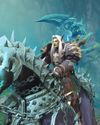
"The War Within itself has kept me coming back most evenings too"
WORLD OF WARCRAFT remains my jailer, and I couldn't be more pleased about it
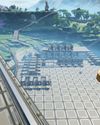
OK BUILDER
SATISFACTORY is the new titan in building and crafting games
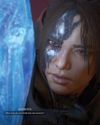
HELL YES
DIABLO IV: VESSEL OF HATRED is a transformative expansion
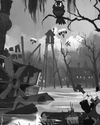
MOUSE: PI FOR HIRE
This mouse wants to be more than just a gimmick

WINDBLOWN
Dead Cells dev's new roguelike has me afraid for my free time
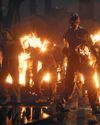
NO MORE ROOM IN HELL 2
As the zombie horde surrounded me just moments after taking down my two remaining teammates, the writing was really on the wall. Armed with just a chef's knife, it was clear I stood no chance, but I was going down swinging, hoping for a miracle... it didn't come.

OWNED BY STEAM
VALVE cordially reminds you that your games aren't yours

CURSE OF THE AZURE BONDS
These classic games haven't aged badly, but I sure have.
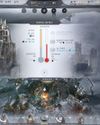
DEEP FREEZE
Endure a blizzard of tough choices and rough consequences in FROSTPUNK 2
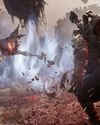
NEW HORIZONS
Building up REMNANT 2 outside the live service game grinder